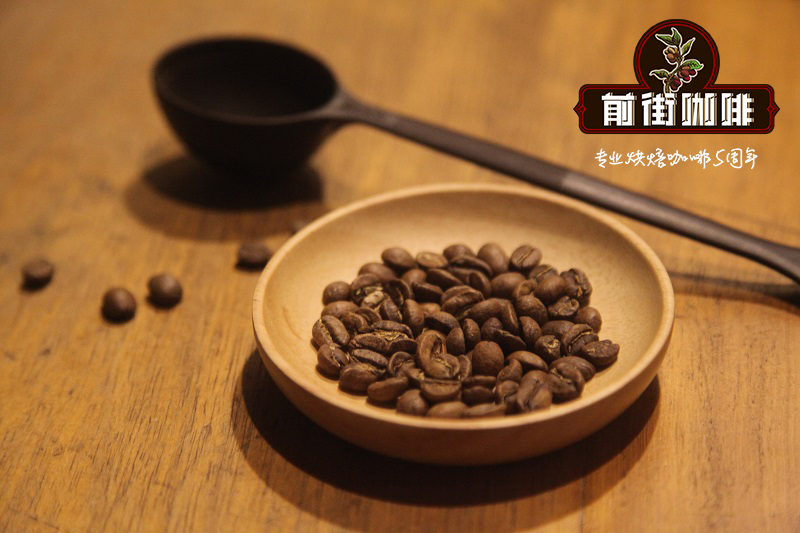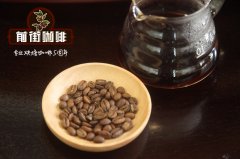Kenya Yadini Kenya Coffee Flavor Features Kenya Coffee Brands

Professional coffee knowledge exchange more coffee bean information please follow the coffee workshop (Wechat official account cafe_style)
Yadini, Kenya
Production area: Yadini
Treatment: washing
Altitude: 1550m--1650m
Cup test information: full-bodied, acid-rich, baked nuts, fragrant chocolate, citrus, mellow
Yadini Coffee Manor
Yadini Coffee Manor was founded in 1924. The company produces 120-160 tons of coffee a year and employs about 200 temporary workers during cherry picking season. Yardini has invested in modern and up-to-date equipment and will take state-of-the-art separated and graded coffee.
The key processes of Yardini include
Produce coffee on the farm
Wet processing
Drying and Storage of Coffee Paper
Located on the beautiful open slopes of the aberdarde Mountains in Kenya's central highlands south of the equator, the farm is the heart of Kenya's main coffee-growing region and is famous for producing premium blackcurrant coffee. Smell.
In the vast Yardini terrain, the fertile soil of volcanic origin, the combination of nitro alcohol and ferriol with the soft rock layer caused by montmorillonite was found. The farm is made up of rivers and rivers that merge from the aberdare Mountains into a major river, and a large amount of water is mostly used for wet coffee processing and irrigation. This water source, known as the Ruilu River, is preserved because its banks have obvious native vegetation, sweet and clean waters and aquatic life. The farm soil is protected by planting figs, red oaks, Egyptian marmots and other soil insecticidal species, such as cones, half-grass and albedo.
Soil humus is provided by the establishment of bluegrass (makarikariensis), which grows inside and outside the coffee line, harvested once a season, forms a mulch and decomposes rapidly to improve soil structure, while also providing a very quiet habitat for farm wildlife such as antelope, hares, Dikdik, hedgehogs, moles and porcupines. The combination of these animals and plants provides high-quality coffee to grow in very sustainable conditions. The average annual yield is 2 tons per hectare.
The harvest occurs twice a year, and the procedures followed are based on sustainability.
Important Notice :
前街咖啡 FrontStreet Coffee has moved to new addredd:
FrontStreet Coffee Address: 315,Donghua East Road,GuangZhou
Tel:020 38364473
- Prev

Flavor characteristics of African Kenyan Nieri Coffee introduced the taste of Kenyan coffee beans
Professional coffee knowledge exchange more coffee bean information please follow the coffee workshop (Wechat official account cafe_style) Kenya Nieri NyeriHill Farm: Niri Hills Manor varieties: sl28,sl34,ruiru11 and batian treatment: washing altitude: 1
- Next

How do you make your own coffee? What is the difference between making a single coffee espresso machine and making it by hand?
Professional coffee knowledge exchange for more information about coffee beans, please follow the coffee workshop (Wechat official account cafe_style) one. What is single-product coffee: single-product coffee refers to the coffee made by coffee beans from a single origin, called single-product coffee. Such as the general boutique coffee shop can taste: Yegashev, Mantenin and so on. two. Is black coffee a single cup of coffee? Black coffee is
Related
- Detailed explanation of Jadeite planting Land in Panamanian Jadeite Manor introduction to the grading system of Jadeite competitive bidding, Red bid, Green bid and Rose Summer
- Story of Coffee planting in Brenka region of Costa Rica Stonehenge Manor anaerobic heavy honey treatment of flavor mouth
- What's on the barrel of Blue Mountain Coffee beans?
- Can American coffee also pull flowers? How to use hot American style to pull out a good-looking pattern?
- Can you make a cold extract with coffee beans? What is the right proportion for cold-extracted coffee formula?
- Indonesian PWN Gold Mandrine Coffee Origin Features Flavor How to Chong? Mandolin coffee is American.
- A brief introduction to the flavor characteristics of Brazilian yellow bourbon coffee beans
- What is the effect of different water quality on the flavor of cold-extracted coffee? What kind of water is best for brewing coffee?
- Why do you think of Rose Summer whenever you mention Panamanian coffee?
- Introduction to the characteristics of authentic blue mountain coffee bean producing areas? What is the CIB Coffee Authority in Jamaica?

